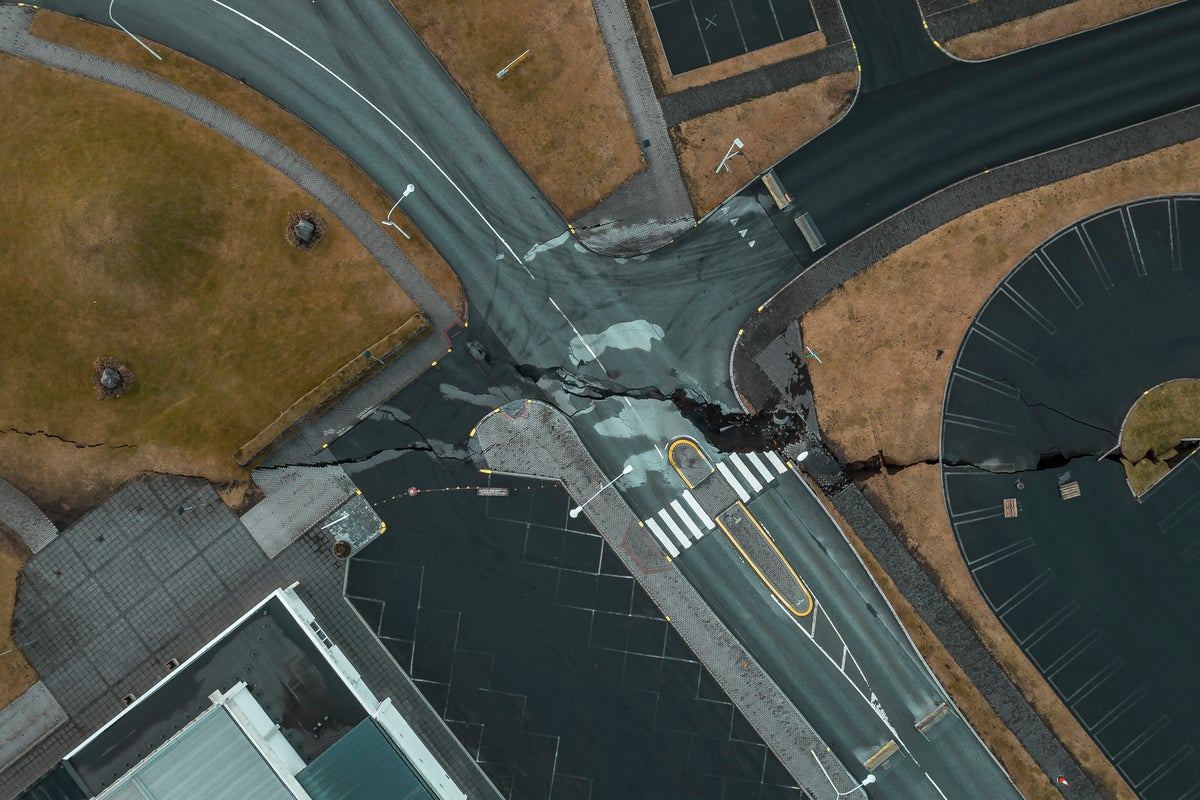
A volcano close to erupting in Iceland could explode like a “can of fizzy drink,” an expert has said.
Iceland’s Met Office has said magmatic gas has been detected at a borehole in Svartsengi, signalling an imminent eruption of the Fagradalsfjall volcano over the coming days, with the town of Grindavik most at risk.
The small fishing town has already been evacuated following thousands of mini earthquakes across the Reykjanes peninsula, southwest Iceland, over the past week.
Magma has been building underneath Iceland and Margaret Hartley, a senior lecturer in Earth sciences at the University of Manchester, said an eruption was a case of when,not if.
“I do think an eruption will take place, but the big question is when that might happen,” she told Live Science.
An eruption would take place when an open fracture connecting the magma dike to the Earth’s surface opens up.
“The most likely way to create this fracture is that a pressure build-up of gas bubbles in the dike will force magma towards the surface, breaking the crust apart,” she said.
“The process is a bit like shaking up a can of fizzy drink — as soon as a crack opens in the top of the can, the drink escapes with lots of frothing.”
Last Friday, thousands of Grindavik residents were ordered to leave as the town was rocked by a series earthquakes.
The town, about 34 miles from Reykjavík, is home to the famous tourist attraction the Blue Lagoon.
A police officer stands by the crack in a road in the fishing town of Grindavik
(REUTERS)
A member of search and rescue team jumps over the crack in a road in the fishing town of Grindavik
(REUTERS)
Many have been unable to return to the ‘danger zone’ to collect their belongings, as earthquakes continue to strike the town.
Grindavik resident Andrea Ævarsdóttir, 46, told The Independent: “Everything just seems so unreal, I feel like I’m in a dystopian movie. I’m just waiting to wake up from this nightmare.”
The mother was getting ready to go into Reykjavík to celebrate her son Björgvin Hrafnar’s 16th birthday when their house started to shake on Friday.
“Some of them [the earthquakes] were like a big truck had driven past your house, the bigger ones were like the same truck had hit your house,” she said.
“Everything was shaking so bad, the floors were going up and down.”
Iceland is highly susceptible to earthquakes and volcanoes because it lies on the Mid-Atlantic Ridge – a divergent plate boundary where the North American Plate and the Eurasian Plate are moving away from each other.
Three eruptions have taken place on the peninsula of Reykjanes near the Fagradalsfjall volcano in the last three years: in March 2021, August 2022 and July 2023.
However, previous eruptions did not cause damage, having occurred in remote valleys.

.jpg?quality=75&width=1200&auto=webp)